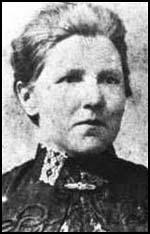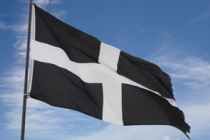Selina Cooper – suffragette, first woman to represent the independent Labour Party, pacifist and rights campaigner

Selina Cooper was born in Callington, Cornwall in 1864, the daughter of Charles Combe and Jane Combe. Selina's father was a labourer and died of typhoid fever when she was 12 whilst he was working away from home. Her mother was left penniless, and as there was little work in Cornwall she decided to take her two youngest children, Selina and Alfred, north with her, to get work in the textiles mills. Her two elder sons, Richard and Charles, were already there. She settled in Barnoldswick in 1876.
Selina Cooper, who was now 12 years old, soon found work in the local textile mill. She spent half the day in the factory and the other half at school. She worked as a 'creeler' , the person that ensured a constant supply of fresh bobbins. When Selina was 13 she left school and worked full-time in the Barnoldswick Mill. Her wages enabled the family to rent a small house close to the mill.
By 1882 Selina's mother was suffering so badly from rheumatism that Selina now had to leave Barnoldswick to look after her bed-ridden mother. They made clothes at home, and took in washing to make money. Jane Combe died in 1889, and Selina returned to work in the factory. Selina joined the Nelson branch of the Cotton Worker's Union. The majority of members were women, however the union was run by men. Selina found that the union was less than proactive on women's issue, for example toilets did not have doors, and women were sexually harassed at work.
Selina also founded Women's Co-operative Guild education classes in Nelson. One of their main objectives was to encourage women to "discuss matters beyond the narrow confines of their domestic lives." Selina also began reading books about history, politics and medicine. She used her education to help her fellow workers.
In 1892 the Independent Labour Party (ILP) was formed in Nelson. The fact that they claimed to support equal rights for women attracted Selina, and it was at the local ILP that she met and in 1896 married, Robert Cooper, a local weaver who was a committed socialist and advocate of women's suffrage. Within 3 years they had 3 children, though Selina's first child died of bronchitis when he was four months old.
In 1900 Selina Cooper joined the North of England Society for Women's Suffrage. She helped organise petitions on equal rights for women, and in 1901, she was one of the delegates chosen to present the petition to the House of Commons.
In 1901 Selina stood as an Independent Labour Party candidate in the Poor Law Guardian elections. Women had been allowed to stand as candidates since the passing of the Municipal Franchise Act in 1869, no working-class woman had ever been elected to one of these bodies. Selina Cooper was elected. She had little success against the establishment in effecting changes to the system.
At the National Conference of the Labour Party in 1905, Selina made a speech urging the leadership to fully support women's suffrage. The following year she helped form the Nelson and District Suffrage Society.
Selina became a full-time NUWSS (National Union of Suffrage Societies) organiser and in 1910 she was chosen to be one of the four women to present the case for women's suffrage to Herbert Asquith, the British Prime Minister.
During World War I, Selina was a pacifist who was totally opposed to military conscription and after its introduction in 1916, became involved in helping those men who were sent to prison for refusing to fight.
After the passing of the Qualification of Women Act in 1918 (women over the age of 30 could now vote), the NUWSS tried to persuade the Labour Party in Nelson to choose Selina Cooper as their candidate in the 1918 General Election. The male dominated Labour Party refused to adopt her as a candidate for this winnable seat.
Cooper continued to be involved in local politics. She was elected to the town council and became a local magistrate. In the 1930s she played a role in the campaign against fascism.
Selina Cooper died in 1946.
This article has been kindly provided by Kernow Matters to Us and is the eighteenth in a series on Famous Folk of Kernow (Cornwall).
- Cornish
- English
- Log in to post comments





